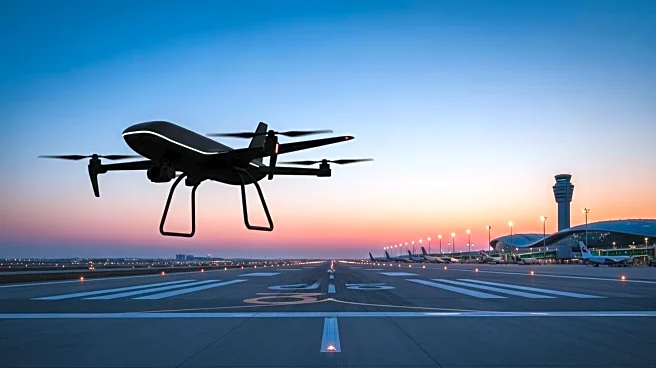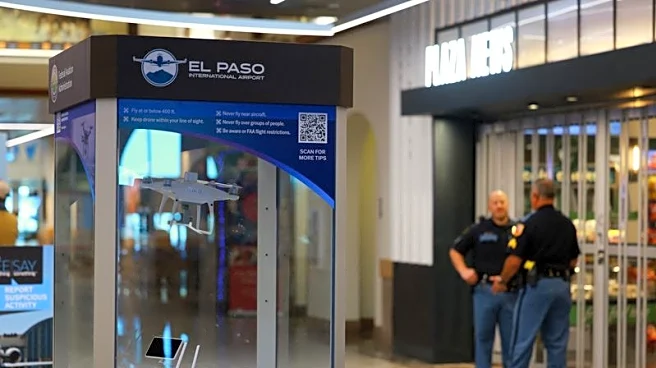What's Happening?
Munich International Airport has resumed normal flight operations following a disruption caused by drone sightings. On Thursday, German authorities suspended operations at the airport, which is the country's second-largest hub, affecting thousands of passengers. The suspension led to 17 departures being grounded and 15 incoming flights being diverted to other airports, including Stuttgart, Nuremberg, Vienna, and Frankfurt. As of Friday morning, operations have returned to normal, although 15 flights were canceled and 46 delayed due to the ripple effects of the previous day's incident. The airport, along with airlines, provided care for nearly 3,000 passengers stranded in terminals, offering camp beds, blankets, drinks, and snacks. The incident is part of a series of drone-related disruptions across Europe, prompting discussions on enhanced security measures.
Why It's Important?
The drone disruptions at Munich Airport highlight ongoing security challenges faced by major transportation hubs in Europe. These incidents underscore the need for improved detection and defense systems against drones, which have become increasingly sophisticated. The disruptions not only affect passenger safety but also have significant economic implications, causing delays and cancellations that impact airlines and travelers. The situation has sparked discussions within the European Union about implementing a 'drone wall' to enhance border security and prevent aerial incursions. As drone technology continues to evolve, airports and governments must adapt their security protocols to mitigate risks and ensure the safety of air travel.
What's Next?
In response to the drone incidents, European Union leaders are considering additional defense systems to protect against drone incursions. The concept of a 'drone wall' is gaining traction, with discussions around its implementation to tighten border security. The EU summit in Copenhagen addressed these security concerns, with leaders exploring strategies to counter hybrid attacks involving drones. As the situation develops, airports may invest in advanced detection technologies and collaborate with government agencies to enhance their security measures. The ongoing threat of drone incursions will likely lead to increased regulatory scrutiny and potential policy changes to safeguard airspace.
Beyond the Headlines
The rise in drone-related disruptions poses ethical and legal challenges, as authorities must balance security measures with privacy concerns. The use of drones for surveillance and defense raises questions about civil liberties and the potential for misuse. Additionally, the incidents highlight the need for international cooperation in addressing drone threats, as they often cross national borders. Long-term, the integration of drones into civilian airspace will require comprehensive regulations and technological advancements to ensure safe coexistence with traditional aircraft.










